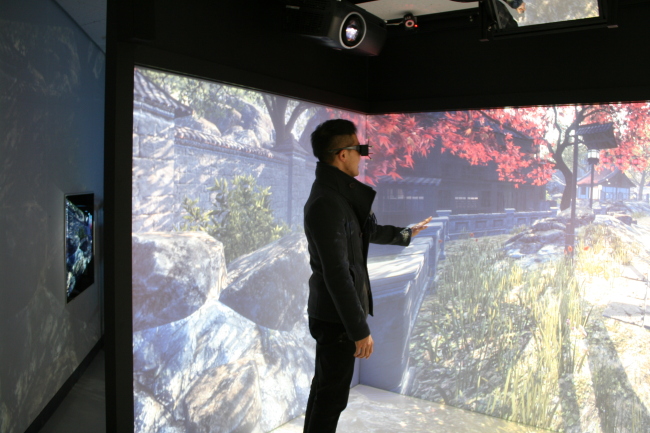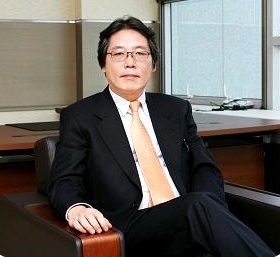In the face of globalization and the diversification of consumer demands, the need for creative new technologies is greater than ever before. In a bid to cater to such needs, Hanyang University’s Graduate School of Technology and Innovation Management said it was seeking to foster talented individuals equipped with a capacity for technological innovation and design for the future.
HYMOT claims that since it was founded in 2011, it has been enhancing competence in Korea by cultivating leaders in technology-oriented management who can spark technological innovation.
HYMOT claims that since it was founded in 2011, it has been enhancing competence in Korea by cultivating leaders in technology-oriented management who can spark technological innovation.

Choi Gyung-hyun, the dean of HYMOT, said the technology created by the institute’s students would create new business opportunities through field such as product design.
“Previously, industrial design mostly focused on the shapes and colors of the product but now other factors like functions also need to be considered,” said Choi. “Via interdisciplinary conversion, we will work to ensure that Korean-style technology management will be recognized as a global standard.”
He said HYMOT was already cooperating closely with businesses: “As of now, 80 percent of our students in master’s and doctor’s programs have jobs.”
The school has a three-tier program for each of its target groups ― there is a program for “chief technology officers” in local enterprises; another course targets those looking to start their own venture companies; and the last one is for “chief design officers,” who create designs combining various technologies so they can have positive effects on the market and people.

“Especially in the management sector, we need more education to foster entrepreneurship (for students),” Cho said.
His determination to apply new technologies to create business opportunities appears timely, since President Park Geun-hye has vowed support for information and communications technology as one of the driving forces of her trademark creative economy initiative.
Choi said the key abilities required of the students were creative entrepreneurship, the ability to manage emerging technology and futuristic problem-solving, and analytical capability.
For this purpose, the school has set three strategic goals ― establishing a practical education course that caters to the demands of the business world, establishing the necessary educational infrastructure and acquiring faculty members with strong backgrounds in theory and real-life experience.
The school appears to have made considerable progress, especially with the latter goal, according to Choi. It has been hiring field experts with abundant experience to work as adjunct professors, and inviting CEOs of business organizations to serve as mentors for its students.
Students at HYMOT are also invited to find real-life cases that are relevant to their studies and analyze them.
Students are also invited to take part in projects in cooperation with workers at companies to cope with actual problems that have occurred.
One such project is the “Imagine Platform,” codeveloped with ParisTech in France. The platform was used to create a virtual reality system named “Imagine Lab” that allows users to explore and interact with objects within an immersive virtual reality environment.
According to HYMOT, the school has developed educational content with the Arts et Metiers ParisTech in France. The content stimulates the senses of the user, allowing a virtual experience of Paris-based Musee Des Arts et Metiers.
The technology can be used in a variety of other fields, Choi added.
“As of now, we are mainly cooperating with the medical industry in developing technology that can help the physically challenged or the elderly ― exercise programs, for example,” Choi said. In addition, virtual reality can help physicians accurately measure patients’ cognitive abilities, rather than having to rely on surveys.
Choi said he and his coworkers were planning to expand its application to other fields like law enforcement and national defense.
“It can be used on 3-D modeling of a crime scene, a technique already adopted in some countries. This will enable virtual preservation of a crime scene, even if the actual scene is physically tarnished,” he said, adding that virtual reality could be used to create 3-D models of military operations.
The researchers at the school are currently working on a mobile version of the Imagine Lab, which theoretically can open doors for virtual experiences in space or underwater.
By Yoon Min-sik (minsikyoon@heraldcorp.com)







![[From the Scene] Monks, Buddhists hail return of remains of Buddhas](http://res.heraldm.com/phpwas/restmb_idxmake.php?idx=644&simg=/content/image/2024/04/19/20240419050617_0.jpg&u=20240419175937)








![[From the Scene] Monks, Buddhists hail return of remains of Buddhas](http://res.heraldm.com/phpwas/restmb_idxmake.php?idx=652&simg=/content/image/2024/04/19/20240419050617_0.jpg&u=20240419175937)

![[KH Explains] Hyundai's full hybrid edge to pay off amid slow transition to pure EVs](http://res.heraldm.com/phpwas/restmb_idxmake.php?idx=652&simg=/content/image/2024/04/18/20240418050645_0.jpg&u=20240419100350)

![[Today’s K-pop] Illit drops debut single remix](http://res.heraldm.com/phpwas/restmb_idxmake.php?idx=642&simg=/content/image/2024/04/19/20240419050612_0.jpg&u=)